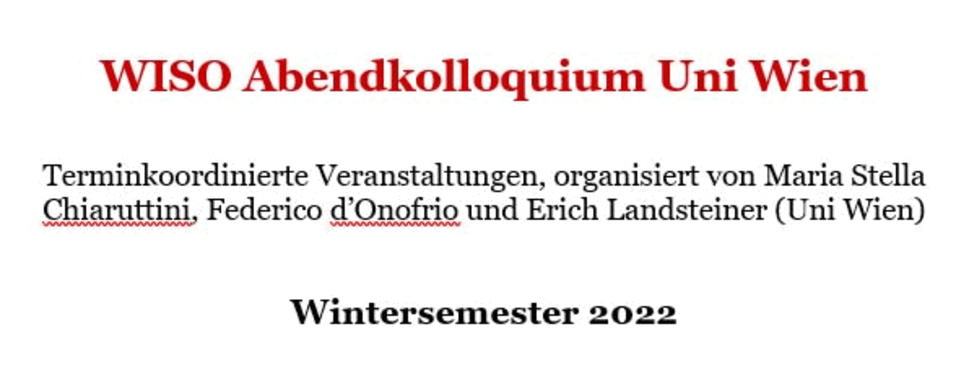Programm WISO Abendkolloquium Wintersemester 2022 (pdf)
Der Zoom-Link wird rechtzeitig vor jedem Termin per Mail verschickt bzw. als Aktuellmeldung bekannt gegeben.
WISO Abendkolloquium Uni Wien, Wintersemester 2022
26.09.2022

